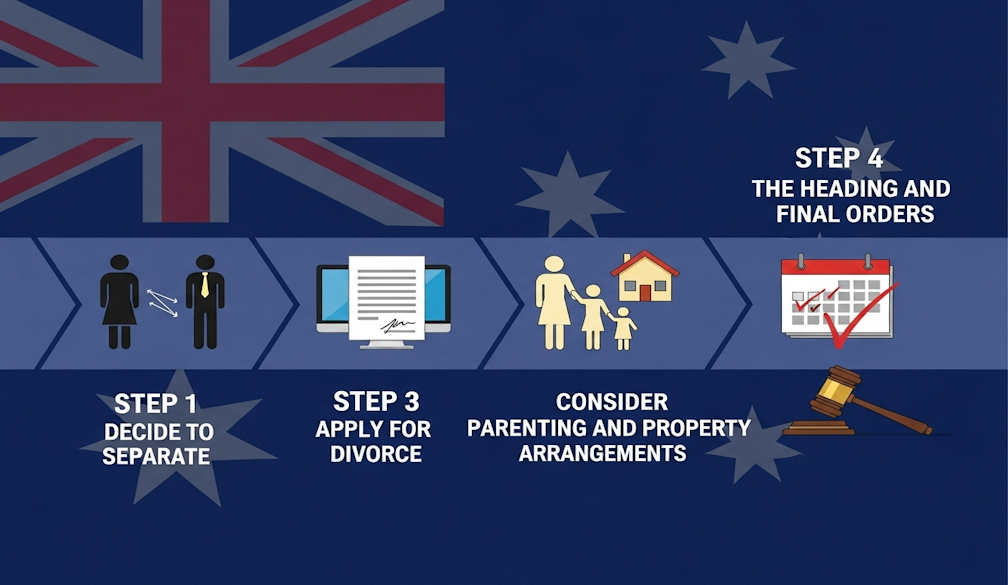Understanding the Divorce Process: A Step-by-Step Guide for Families

Divorce can feel overwhelming, especially when emotions run high and the future seems uncertain. During these struggles, many people seek help from family lawyers, but having a working understanding of the rules makes each stage easier to manage. From confirming eligibility to applying for orders, there are defined requirements and timelines to keep in mind. With the right information, it becomes easier to move forward with confidence and make sound decisions. This article will outline the Australian divorce process in clear steps so families know what to expect.
Step 1: Decide to Separate and Check Eligibility
Australia has a no-fault divorce system, which means the court only needs to be satisfied that the marriage has broken down irretrievably. To apply, spouses must be separated for at least 12 months. Separation can occur under one roof, but if so, expect to provide extra evidence explaining separate living arrangements. At least one spouse must be an Australian citizen, ordinarily live in Australia or have lived here for the 12 months before filing. If the marriage is less than two years old, a counselling certificate is usually required, or an affidavit explaining why counselling wasn’t appropriate. These early steps are often where family lawyers can help clarify what evidence to gather and how to present circumstances to the court so the application proceeds without delays.
Step 2: Apply for Divorce and Serve Documents
Divorce applications are filed online in the Federal Circuit and Family Court of Australia. The application can be made jointly or by one spouse alone. A filing fee applies, with possible reductions for eligible applicants. If filing a sole application, the other spouse must be formally served with the documents, and proof of service must be filed. Service rules are strict, so it’s important to follow the method that matches the other spouse’s location and circumstances, including translations if required. If there are children under 18, the court will want information showing appropriate arrangements are in place for their care. Where questions arise about service, timelines or evidence, family lawyers can help avoid common pitfalls that lead to adjournments or additional costs.
Step 3: Consider Parenting and Property Arrangements
Divorce deals with ending the marriage, but parenting and property settlements are separate processes. For parenting, the law focuses on the best interests of the child. Parents can record agreements in a parenting plan or apply for consent orders. If agreement proves difficult, mediation through family dispute resolution is often required before court action, unless exemptions apply due to safety concerns.
Property settlements involve identifying and valuing assets and debts, assessing contributions and considering future needs to reach a fair outcome. Spousal maintenance may also be relevant. Applications for property settlement must be started within 12 months of the divorce becoming final. Seeking guidance from family lawyers will help ensure settlements are tailored to each family’s circumstances and timelines are met.
Step 4: The Hearing and Final Orders
Not every divorce requires a court appearance. Joint applications without children under 18 typically proceed on the papers. If attendance is needed, the hearing is usually brief and conducted by a Registrar. The main issues are whether the separation period is met and suitable arrangements exist for any children under 18. Once granted, a divorce order becomes final one month and one day after the hearing date. After that, parties can formally finalise property matters if not already done, and some choose to update personal records or change names.
When questions arise or the situation is complex, guidance from experienced family lawyers can provide clarity and reduce stress at every stage of the divorce process.



